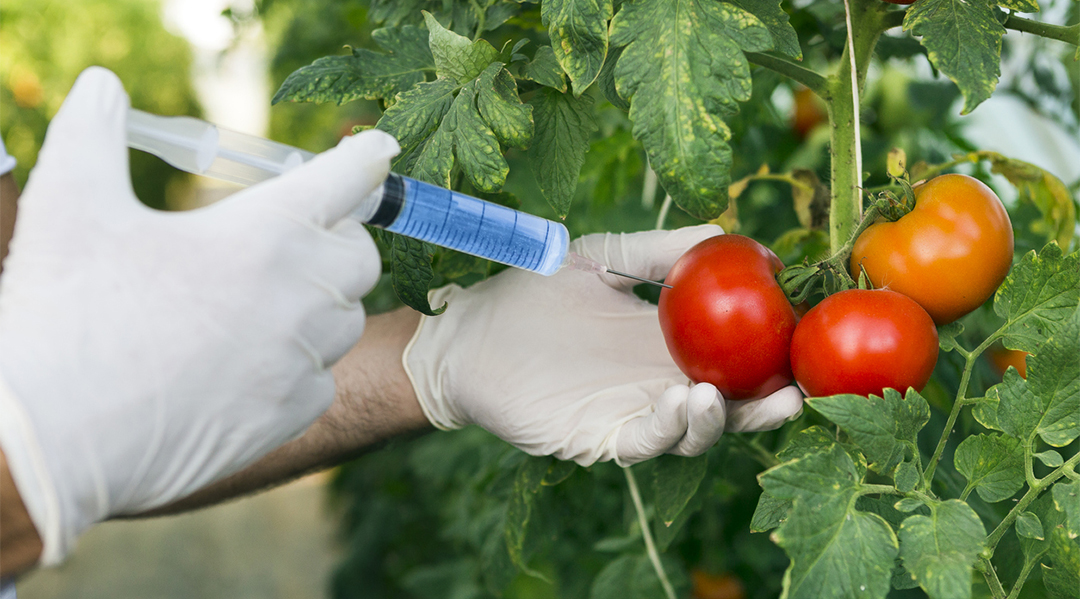Next-Generation Sequencing (NGS) GMO Analysis
Next-Generation Sequencing (NGS) is a revolutionary technology that has transformed genetic analysis by offering high-throughput, cost-effective sequencing capabilities. In the realm of agriculture and forestry testing, NGS provides an unparalleled tool for identifying and characterizing genetically modified organisms (GMOs). This service enables our clients to ensure compliance with international regulations while enhancing product safety and efficacy.
NGS technology allows for the rapid analysis of vast amounts of genetic data. By leveraging advanced bioinformatics tools, we can accurately detect even trace levels of GMOs in complex samples such as seeds, grains, or tissues. This capability is crucial for maintaining market access and consumer trust.
The process begins with sample preparation where genomic DNA is extracted from the biological material under study. The extracted DNA undergoes fragmentation followed by library construction, which involves adapter addition and amplification steps. Once prepared, these libraries are ready for sequencing on state-of-the-art NGS platforms like Illumina or Ion Torrent.
Post-sequence data analysis plays a pivotal role in our service offering. Utilizing sophisticated software packages, we align raw reads against reference genomes to identify specific genetic markers indicative of GMO traits. This step ensures precise identification even when dealing with highly similar sequences.
In addition to standard GMO detection, our NGS services also offer comprehensive profiling capabilities. These include SNP (Single Nucleotide Polymorphism) calling, methylation analysis, and expression quantification, which provide deeper insights into the genetic makeup of organisms beyond mere presence or absence checks.
Our rigorous quality control measures ensure that every result meets strict accuracy standards set by relevant international bodies. Compliance with standards such as ISO 17025 guarantees reliability and traceability throughout our entire testing procedure.
The ability to detect minute quantities of GMOs makes NGS particularly valuable for monitoring genetically modified crops during cultivation, processing stages, storage facilities, and final distribution channels. This early detection capability helps prevent unintentional contamination events that could lead to recalls or legal disputes.
By adopting cutting-edge technologies like NGS into their quality assurance programs, companies can stay ahead of regulatory requirements and consumer expectations regarding transparency and integrity in agricultural products.
Applied Standards
| Standard | Description |
|---|---|
| ISO/IEC 17025:2017 | Laboratory accreditation standard ensuring technical competence and quality management systems. |
| EU Regulation (EC) No. 1829/2003 | Mandatory EU legislation governing the labeling of genetically modified food and feed products. |
| AACC International Method P475-16 | Standard method for detecting specific GMOs in grain samples using PCR techniques as part of a broader NGS workflow. |
| AOAC Official Methods of Analysis | Official methods developed by the Association of Analytical Chemists, including those applicable to GMO analysis. |
Benefits
The adoption of Next-Generation Sequencing (NGS) for GMO analysis offers numerous advantages over traditional methods. Firstly, NGS provides unprecedented sensitivity and specificity, allowing laboratories to detect even trace amounts of genetically modified organisms within complex matrices.
Secondly, this technology enables rapid turnaround times compared to older techniques, streamlining supply chain management and reducing costs associated with lengthy testing cycles. Thirdly, the ability to perform extensive genetic profiling adds value by offering more than just binary presence/absence results; it allows for detailed characterization of GMOs present.
Compliance with stringent regulatory requirements is another key benefit offered through NGS services. By adhering strictly to internationally recognized standards like ISO/IEC 17025:2017 and EU regulations, we ensure that all analytical outputs are reliable and credible.
Lastly, enhanced traceability and transparency contribute significantly towards building consumer confidence in agricultural products derived from biotechnology. With NGS, stakeholders can confidently demonstrate adherence to best practices throughout product development cycles.
Use Cases and Application Examples
In the context of agriculture and forestry testing, Next-Generation Sequencing (NGS) finds application across various stages from research and development to commercial production. During R&D phases, scientists use NGS to explore potential genetic modifications that could improve crop resistance against pests or environmental stresses.
For regulatory compliance purposes, companies leverage this technology during certification processes required for importing/exporting genetically modified crops. In operational settings, NGS helps monitor field trials by continuously tracking the spread of genetically engineered varieties among non-target species.
A practical example includes a leading seed company that utilizes our NGS services to screen newly developed lines before releasing them into open markets. They rely on this technology not only for initial safety assessments but also as part of ongoing monitoring programs aimed at preventing unwanted cross-contamination events.
Another instance involves a major grain processing facility which employs NGS analysis regularly to maintain stringent quality control measures throughout its supply chain. By integrating these tests into their daily operations, they ensure consistent product purity and meet strict contractual commitments made with buyers worldwide.





